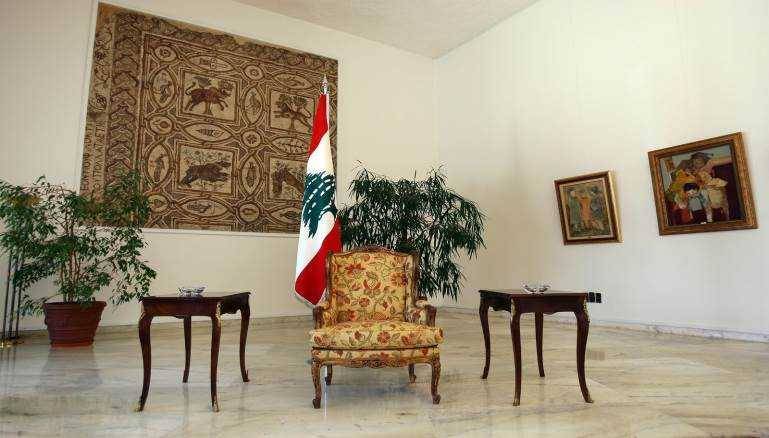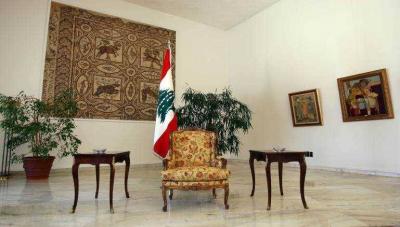On the front of the presidential election, political circles monitoring the situation told "Al-Jumhuriya" that this election has "established itself as a top priority in this pivotal stage leading up to the constitutional period for electing a new president, which begins in early September. Most political positions and movements have fallen into the presidential context, even if they do not overtly appear that way. The influential forces are counting on this election either to maintain the status quo or to bring about a change in the presidency, with the aim of establishing a new government that breaks away from past formations."
In this regard, sources close to the opposition stated to "Al-Jumhuriya" that "the presidential elections represent an entry point to restore balance within constitutional institutions, which has been lost under the majority of the March 8 team, as well as a ministerial majority and a president under General Michel Aoun's presidency. With the loss of this team's majority in the recent elections, it no longer possesses the ability to control constitutional pathways as easily as it was accustomed to, and this development should not be treated as if it never happened just because the opposition components have not succeeded in unifying their ranks. Instead, it should be built upon, and efforts should be made for unity in a unified stance, particularly regarding the presidential election."
The same sources emphasized that "change does not happen with the push of a button or through a magic wand, but rather through cumulative work, continuous effort, ongoing struggle, and relying on a policy of taking each round as it comes without exaggerating the situation. Winning each round can enhance the overall conditions for confrontation. Therefore, it is a mistake to deal with the presidential election as if what comes after it is different from what came before, unless the 8 March team successfully extends its presidential term through a politician of its own color. While the success of opposition components in electing a president who believes in sovereignty and reform, and who is not influenced by the use of arms and influence policies, must lead the state's path to the desired change at least in three essential aspects:
- The first aspect pertains to the management of the state, regarding the president's commitment to implementing the constitution, rejecting the logic of bargains and compromises, and being a role model in the decisions he makes and the appointments he adopts, free from favoritism and patronage, based on the standards of competence and merit. The state reflects the image of its president, and the president cannot hold others accountable if he practices a dual policy of summer and winter on the same surface, prioritizing his personal interests and those of his close associates, while he can create positive contagion and embarrass others through his dedication, transparency, and refusal of anything for himself.
- The second aspect is related to his firm stance that what belongs to the state is for the state; it is the one that has the final say and decision, rejecting any partnership with any team without needing to confront them, and not allowing a mix between what is legitimate and what is illegitimate, because the real decline and collapse began when the separation between the state and the ‘duality state’ collapsed.
- The third aspect concerns his commitment to maintaining the best relations with the international and Arab communities, specifically the Gulf, rejecting Lebanon's continued role as a platform for targeting these countries either politically or security-wise, or through drug exports. He should emphasize condemning any political or other attack against these countries, which in turn should understand that the official Lebanon is committed to the best relations with them. However, there is little that can be done given the current situation, which is the responsibility of international, Arab, and Lebanese actors, meaning these countries must differentiate between the state of Lebanon and the ‘duality state’."
The sources added, "Those who believe that the opportunity is unavailable, and surrender to frustration and the status quo are mistaken. The opposing team is at its weakest points due to its failures and the exposure of its project to public scrutiny, showing that it has led the country to collapse, where there is no solution except through a state of institutions. The presidential elections constitute a real entry point to recreate an authority that resembles the people and governs in the name of the Lebanese people, limiting the expansion of the illegitimate team within the legitimate institutions, and simultaneously working on the expansion of the state project at the borders and within institutions, adopting a reformist and transparent approach that stops waste and corruption, and enacts reformative laws that start with judicial independence and end with the law of appointments, granting every rightful owner their due based on competence, not favoritism."
The sources concluded: "The opposition is called to pool all its efforts to unify its ranks and succeed in the presidential election that occurs once every six years, in addition to the fact that winning this election paves the way for translating the change that people voted for in the recent parliamentary elections, while missing this opportunity means an extension of the crisis for a new presidential term."




